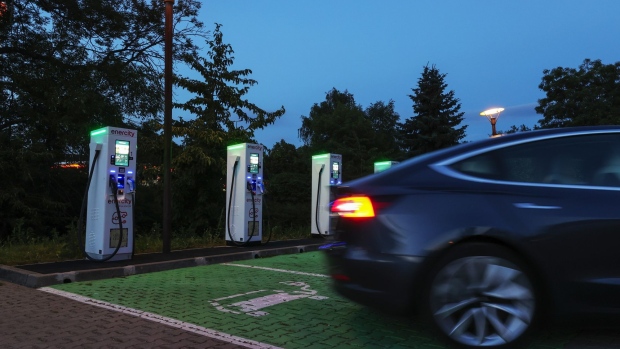Jul 13, 2021
Germany sees 14 million electric vehicles on its roads by 2030
, Bloomberg News

Germany expects to have 14 million electric and plug-in hybrid vehicles on its roads by 2030 as Europe’s biggest economy attempts to comply with increasingly stringent emissions rules.
The forecast is at least 40 per cent higher than a previous estimate thanks to a recent surge in EV sales, Economy Minister Peter Altmaier said Tuesday. Germany expected to have about 1 million such cars on its roads this month.
“This is good news for climate protection and decarbonization,” Altmaier told reporters in Berlin. “It’s also bound to have an impact on electricity consumption.”
Bloomberg News reported last week that the European Union is set to propose that all new cars sold from 2035 should have zero emissions, as part of an unprecedented plan to align its economy with more ambitious climate targets.
Germany’s government expects the surging EV sales to push up electricity demand to about 655 terawatt-hours by 2030, Altmaier said, citing preliminary estimates. Consumption was 568 TWhs in 2018, according to the International Energy Agency.
Automakers have in recent months announced plans for most or all of their sales in Europe to be battery-electric by the end of the decade. Volkswagen AG, the region’s largest manufacturer, plans for more than 70 per cent of its namesake brand sales to be EV from 2030 onward.





